On Europe’s militarization and its growing economic and political crises, from the Turkish community in Germany, to Türkiye–Germany relations, from cultural imperialism to and Israel’s aggression.
On Europe’s militarization and its growing economic and political crises, from the Turkish community in Germany, to Türkiye–Germany relations, from cultural imperialism to and Israel’s aggression.
Tomasz Froelich is a Member of the European Parliament (MEP) from Germany’s Alternative for Germany (AfD) party. He also serves on the European Parliament’s Subcommittee on Human Rights and the Delegation for Relations with Central Asia.
Froelich’s party AfD is currently Germany’s main opposition party. Despite the elections being relatively recent, the latest polls show the AfD leading nationally. As readers may recall, we published a striking interview with AfD co-chair Tino Chrupalla in November 2024.
Speech that sparked debate at the European Parliament
Tomasz Froelich recently made headlines in Türkiye following a speech he delivered at the European Parliament. His remarks stood out from what we typically hear from European politicians:
“Türkiye is not a liberal democracy, that’s true, but it doesn’t have to be. Türkiye is an independent country with its own important strategic vision. It’s forging its own path by blending tradition and modernity. We respect that. But you don’t.
You criticize Türkiye for rejecting gender ideology, but that is its sovereign right. You condemn its withdrawal from the Istanbul Convention, yet six EU members never signed it in the first place. You attack Türkiye over the war in Ukraine, but Ankara acted wisely building pragmatic relations with all sides, taking on a mediating role, and even brokering the grain deal. That’s what diplomacy looks like.
You accuse Türkiye of not sharing our values. But what European values are we talking about today? Cancelled elections in Romania? Fabricated political trials in France? Wiretapping the opposition in Germany? The EU claims to be ‘united in diversity,’ but only those who do exactly what you want—those who surrender their independence and values—are allowed in. That’s not unity. That’s imperialism using values.
We don’t meddle in Türkiye’s internal affairs. But if they start interfering in ours, then we criticize them.”
Froelich also opposed US and Israeli strikes on Iran during the 12 days of Iran–Israel war.
We talked with the German MEP about a wide range of issues, from Europe’s militarization and its growing economic and political crises, from the Turkish community in Germany, to Türkiye–Germany relations, from cultural imperialism to and Israel’s aggression.
“Europe should be autonomous within NATO”
The rapid militarization and armament of Europe is widely known. It’s a process in which not only states and institutions, but society as a whole is being prepared for war. What’s driving this? Is it a genuine threat from Russia? An attempt to overcome Europe’s economic crisis by boosting the arms industry? Or is it the will of globalist forces in Europe seeking to fill the power vacuum left by Trump’s retreat from global hegemony?
First of all, the AfD advocates for a strong and efficient German military and, in principle, welcomes a militarily powerful and sovereign Europe that is independent from the United States.
However, you are right in pointing out that the current developments are troubling and raise a number of critical questions. In just a few short years, the ruling political class in the EU has absurdly swung from a position of total disregard for the military and national defense to the complete opposite: a state of sheer hysteria.
This shift is partly due to the poor quality of political leadership, which lacks the ability of clear and rational analysis. But it also stems from a need to construct external enemies in order to distract the public opinion from the growing internal problems caused by their own policies.
From our perspective, the current debates need to be approached with much more sobriety. The AfD supports normalizing relations with Russia, but not from a position of weakness.
Whether the US’s withdrawal from Europe will be long-term remains to be seen. In any case, strengthening the European pillar within NATO to the point of self-sufficiency is a goal worth pursuing. And in doing so, we will urgently need Türkiye as a strong ally.
Cooperation with Türkiye in the field of energy
Western media report almost daily on the economic crisis in Europe. In Germany, we are witnessing the closure of numerous factories and businesses. In your view, what could be a way out of this crisis?
Germany’s economic crisis is the result of having lived off its substance for decades. There were warning voices early on, but they were ignored during the era of cheap money and a strong global economy. As a high-wage country with limited natural resources, Germany must maintain its competitiveness through industrial manufacturing and research and development. This will require a series of measures.
First and foremost, energy must become affordable again. The Green Deal, both at the national and EU levels, must be completely abandoned. Germany must once again be able to use all available energy sources from reactivating nuclear power and continuing to exploit domestic lignite, to reopening Nord Stream for gas imports. An energy partnership with Türkiye to build additional gas pipelines is also an option we are open to. Renewable energy should be used as far as it makes economic and technical sense.
Painful structural reforms will also be unavoidable. The state is weak where it should be strong, and bloated where it should be efficient. We must reduce taxes and levies, and drastically cut government waste. This would free up financial resources that could be invested in new industries, infrastructure, and research and development. Germany must remain a world-class industrial nation.
“We reject sanctions on Russia and trade war against China”
Finally, we believe it is crucial that Germany not be cut off from key trading partners by sanctions pushed by the US and the EU. Russia is the most prominent example, but far from the only one. A looming EU trade war with China would have even more devastating consequences and must be avoided at all costs.
We also reject trade restrictions against other emerging regional powers.
A tendency towards dictatorship in Europe
Alongside Europe’s militarization, we are also witnessing a crackdown on opposition forces. In Germany, the AfD is under attack; in France, it’s Le Pen; in Romania, elections are being annulled; and the Orbán government is facing efforts to isolate it from the European community. Are Europe’s neoliberal elites leading the old continent toward dictatorship?
Yes, we are clearly seeing a trend in that direction across Europe. The repression of opposition forces like the AfD in Germany, or the targeting of sovereign national governments such as Orbán’s in Hungary or Fico’s in Slovakia, shows that the EU is unwilling to tolerate democratic diversity of opinion or alternative political paths. Smaller countries, in particular, are now being openly threatened by Brussels. In essence, the EU is establishing a kind of social credit system at the supranational level: those who don’t obey are punished. Especially in Eastern European countries that once lived under Soviet rule, this evokes painful memories. Eurocrats are completely unaware of how arrogant and humiliating their entire political approach comes across in countries like Hungary or Slovakia—simply because they lack any cultural sensitivity.
The manipulation of elections, as seen in Romania, and the blocking of certain candidates, as in the case of Marine Le Pen in France, mark a new level of escalation. And the fact that in Germany, people are openly discussing banning the AfD—after our party received over ten million votes in the federal election—is deeply alarming.
All of this makes European politics appear even more hypocritical and self-righteous on the world stage, especially when European leaders interfere in the internal affairs of other countries and arrogantly try to impose so-called “European values” on them. This pattern of interference and moralizing is something your readers in Türkiye know all too well from their own experience with European politicians.
Nationalism: An existential threat in the eyes of globalist elites
If you look closely, the main targets of this political agenda seem to be European nationalists… Has nationalism now replaced communism as the new threat?
Just like in foreign policy, the ruling class also needs an internal enemy to distract from its own failures. That’s why the growing forces of the right-wing conservative or nationalist spectrum are being portrayed as a resurgence of 19th-century nationalism—supposedly threatening to plunge Europe back into a landscape of trenches. But nothing could be further from the truth.
Today’s national and patriotic movements in Europe are not promoting aggressive nationalism. At their core, they are driven by a defensive idea: the desire to preserve their nations in the face of a constant threat of erasure posed by globalism. It is precisely for this reason that meaningful cooperation between patriotic movements across Europe is now possible—something that would have been unthinkable in the past.
The globalist elite is well aware of the powerful appeal these patriotic and nationalist movements hold, and they view them as an existential threat to their own dominance. That’s why they seize every opportunity to demonize any political force that operates outside their tightly controlled system.
“We are open to work with BSW”
We’re seeing that global conservatives and global leftists in Europe increasingly align on many issues. But is there no common ground between European nationalists and left-wing forces that also advocate for national sovereignty? For instance, isn’t the BSW in Germany facing similar obstacles that AfD is facing?
I don’t believe the concepts of the political right and left are fundamentally outdated, as I think they reflect different views of humanity and societal order that still deserve to be distinguished intellectually. However, it’s true that these categories no longer form a simple one-dimensional scale.
There are indeed elements within the political left with whom we can share significant common ground—particularly those parts still rooted in the working class, a certain cultural conservatism, and anti-imperialism. It’s this anti-imperialist stance that also leads them to reject today’s liberal values-imperialism.
As for cooperating with BSW, which represents this political current in Germany, we are open to working together on a number of concrete issues. However, it remains unclear whether BSW will manage to establish itself as a political force capable of collaboration with the AfD, especially given its failure to enter the Bundestag and its internal power struggles.
In a speech at the European Parliament, you stated, using the example of Türkiye, that Europe cannot impose its values on other countries. How do you view this in relation to migrants in Europe, for instance, Turks in Germany, who want to preserve their own culture and values?
Of course, this is a different level of consideration, since we are talking about the internal living conditions in Europe or specifically in Germany. As the AfD, we naturally advocate that a Central European, German identity remains the defining one for Germany.
We therefore expect the many people with an immigrant background to respect Germany and the Germans, and to be a productive part of this country. This is certainly the case in the vast majority. It is especially the case for the German Turks, some of whom are now in their fourth generation in Germany and whose identity is shaped by the fact that they live between two cultures.
Common ground between the AfD and Turks in Germany
As a right-wing conservative party, we do not demand that anyone forget or even discredit the heritage, culture, or religion of their ancestors. In recent times, we have seen growing common ground between the AfD’s positions and the cultural conservatism of Turks living in Germany. Mutual misunderstandings have significantly decreased. No one whose grandfather came to the Ruhr region from Türkiye as a miner needs to fear being driven out of Germany by the AfD. Such claims are nothing but hostile propaganda against our party.
It is also true, however, that we reject the mass immigration that has taken place over the past fifteen years and want to reverse it. Immigration that affects the social welfare systems and crime statistics, which due to sheer numbers has already made Germany’s identity unrecognizable in some cities, is something we cannot accept. But as already mentioned, many German Turks stand with us on this issue, as they themselves can barely recognize their own living environment in Germany anymore.
Values imperialism: An obstacle to the world peace
In the same speech, you used the term “value imperialism”. What exactly do you mean by “value imperialism”?
I think it’s no longer a secret, at least since the woke Biden administration, that the United States and its loyal partners, including the EU, have been trying to exert foreign policy influence over nearly every country on Earth through the formulation of supposedly universal values. Since these values are codified as human rights, they are expected to serve as the societal and political benchmark for every human society. Many supranational institutions, particularly those under American hegemony, have also enshrined certain Western progressive value systems into law.
From a Western perspective, various think tanks, activist groups, NGOs, media outlets, and political parties can invoke these values to serve Western influence. This “soft power” model has been extremely useful for the Americans from the Cold War to the present. However, the hyper-progressive, woke rebranding of these values, such as transsexualism, feminism, antinatalism, and so on, has led to the destabilization of many societies, including those in the West itself. Under Trump, this approach was at least scaled back in principle, but the Eurocrats continue to pursue this policy, because the establishment knows nothing else. In my view, this cultural colonialism of certain Brussels elites is an anachronism: it prevents Europe from recovering socially and politically from within, and it also destroys opportunities for cooperation in foreign policy. Contrary to all claims, this won’t bring about world peace. Value imperialism must finally come to an end.
Who are chauvinists in the West?
Do you consider the Western model of development and progress to be the only viable path for the entire world? Or can oppressed or developing countries also pursue their own, original models? Does everyone really have to follow the path of the West and Europe?
You are exactly addressing what I referred to regarding values imperialism. It is completely absurd to believe that all peoples of this earth must develop the same way of life. This idea of progress was actually an early modern utopia, back when anthropology and the rediscovery of Western philosophy were still in their infancy. Based on the fundamental equality of humans, various speculative philosophies constructed the ideal of the abstract cosmopolitan, that is, the Westerner. Although meant to be inclusive, this idea is deeply chauvinistic and indeed Eurocentric. I consider it outdated and also see it as an obstacle to realizing true human diversity, which precisely lies in the difference and uniqueness of the Other. In this context, Europe would also do well to find its own path beyond the American West. After all, our original Western tradition is far more extensive than the ideals of the French Revolution.
“Merz and Starmer go beyond mere defensive intentions”
How do you see the future of NATO? Could the alliance face internal divisions?
One can only speculate about the future of NATO.The cohesion of the alliance is currently maintained primarily by hostility towards Russia, which is why the confrontational stances of figures like Friedrich Merz or Keir Starmer go beyond mere defensive intentions. Today, it is no longer accurate to speak of a unified bloc as it might have been during the Cold War. Yet this formula is still being clung to.
The current elites are concerned that the Americans may withdraw and leave the Europeans to their own fate. At the same time, there are diverging interests within the alliance. A lot is shifting behind the scenes, even if an image of “iron unity” is projected outward. Personally, I wouldn’t make any firm assessments or predictions yet.
War crimes of Israel
Israel’s aggression against the Palestinian people continues with full force. However, Europe responds with little more than weak reactions, and in fact, by turning a blind eye and supplying weapons, is essentially supporting Israel’s aggression. Is Israel truly defending itself or are we witnessing a genocide in Gaza?
The Israeli-Palestinian conflict has a long history and is complex in both its origins and developments. Public opinion tends to swing entirely in one direction or the other.
What is clear is that Israel has a right to self-defense, and the Hamas attack of October 7 must be condemned. But it is also clear that humanitarian standards must be upheld, and the forced displacement of a population runs counter to international law.
Over the past months, the boundaries of legitimate self-defense have become increasingly blurred. War crimes and violations of international law committed by Israel can no longer be dismissed. At the same time, Hamas continues to hold hostages and refuses to release them.
In Europe, there is a persistent reluctance to draw any consequences from this situation, both due to geopolitical power dynamics and historical reasons.
For Germany in particular, taking a critical stance toward Israel is especially difficult. However, the need to do so is becoming more and more apparent. Even the CDU government has spoken of a “forced solidarity” with Israel, which demands partisanship even when it becomes morally and legally indefensible.
Public opinion in Germany is at least clear: a significant majority views Israel’s actions in Gaza critically and opposes further arms deliveries. I believe that, sooner or later, both the political establishment and the opposition will have to yield to the will of the people.
Germany-Türkiye relations
If you were governing Germany, which issue would you choose as the starting point for cooperation with Türkiye? In which areas do Germany and Türkiye share common interests, and where do they compete?
Germany and Türkiye are already closely linked economically. They are important trade partners and export markets and cooperate on investment and research matters. This partnership must be further strengthened.
In terms of societal norms, Türkiye is also considerably more conservative than most Western countries, which places it closer to the AfD’s political outlook. Additionally, Türkiye has de facto become a geopolitical “player” in the Balkans, the Eastern Mediterranean, and the Middle East. Every European country must find a balance of interests with Ankara, as Türkiye is the bridge of the West to the East.
Germany and Türkiye also share historical ties. Many may have forgotten, but during the First World War they were allies. And the Turkish-German population has over the generations become an integral part of Germany’s social fabric. Of course, some tensions still exist, but overall, the relationship between Germans and Turks has become more harmonious in Germany.
For all these reasons, I believe that Germans and Turks may once again assume a historical role together shaped by partnership.







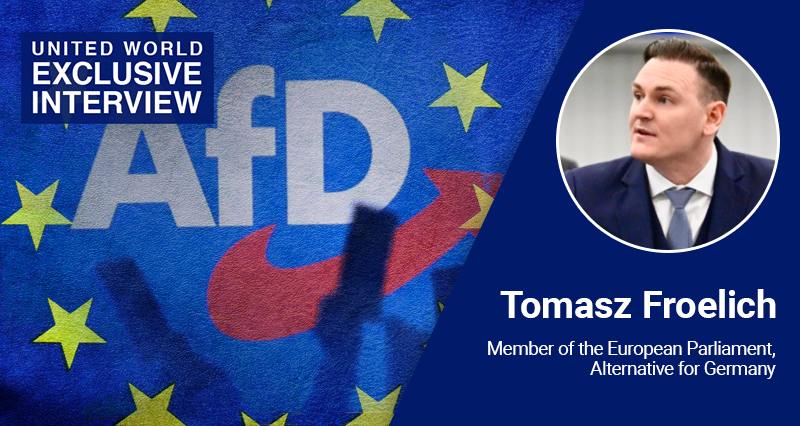
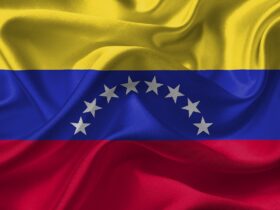

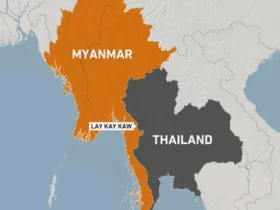
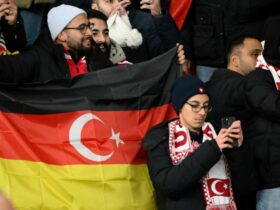
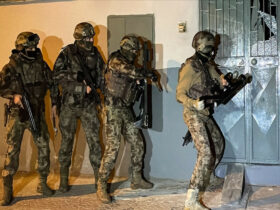

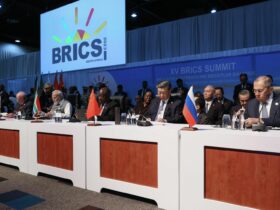
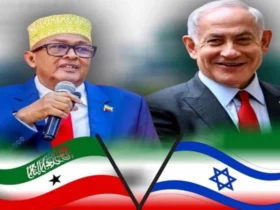

Leave a Reply